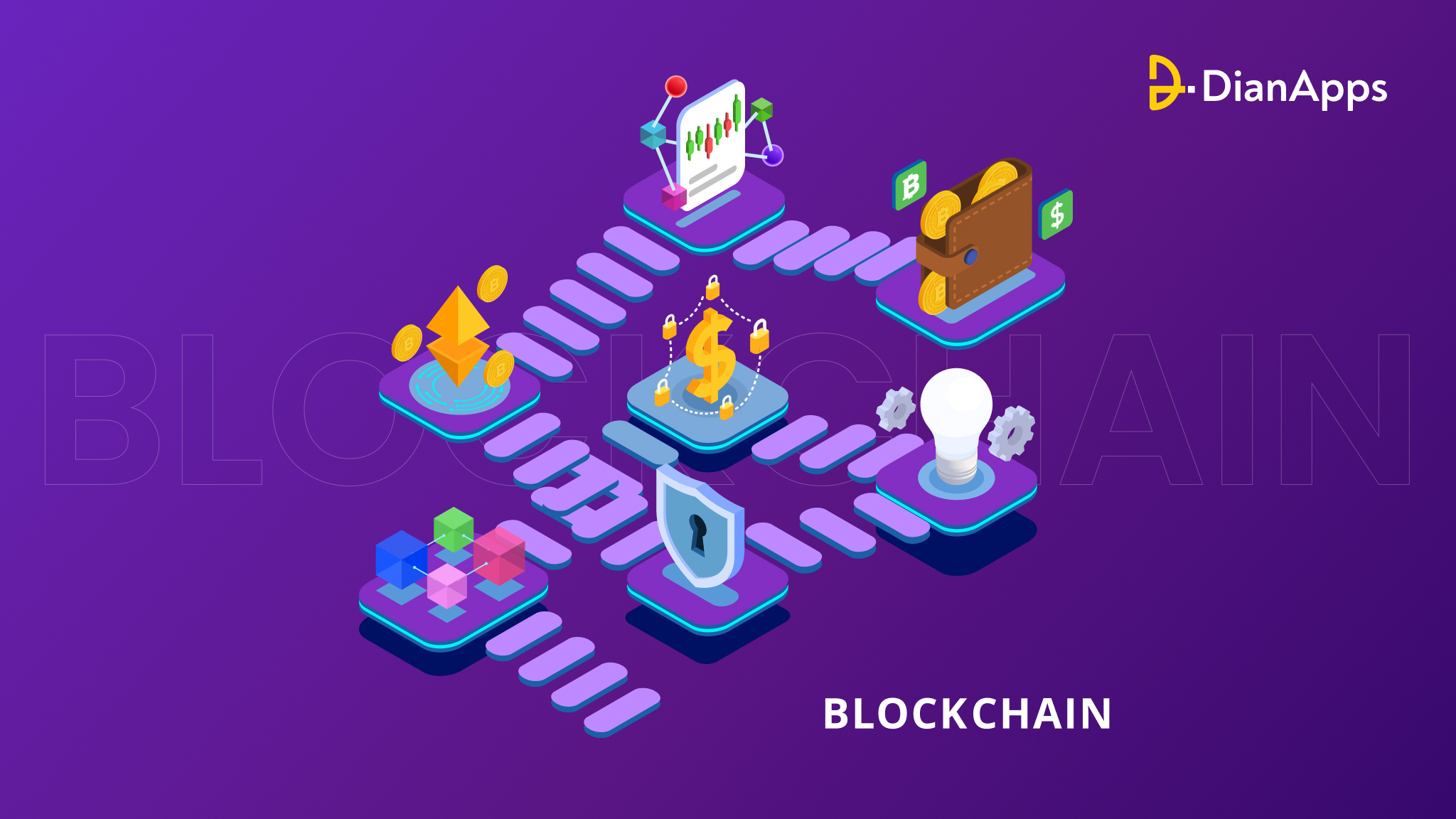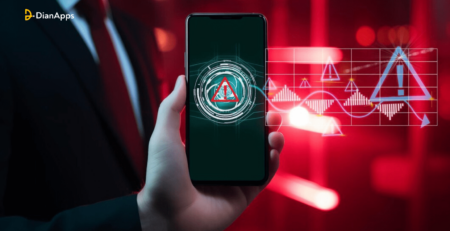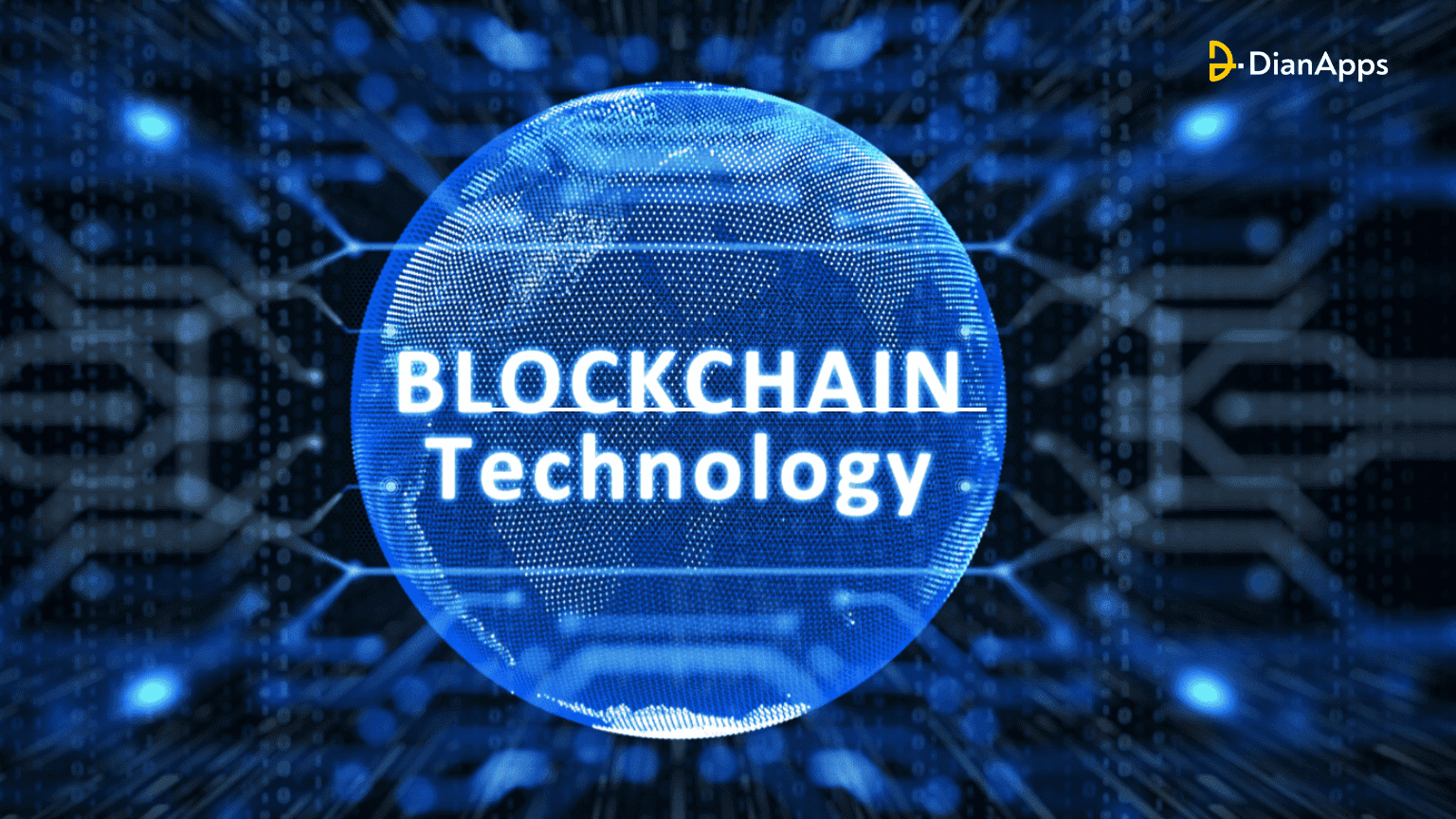Why Blockchain Development is a Game-Changer for Supply Chain Management?
Supply chain management is essential for guaranteeing the smooth movement of products and services in today’s globally connected society. Traditional supply chain systems, however, have many difficulties, including a lack of transparency, problems with counterfeiting, and ineffective procedures. Blockchain development is here, a game-changer that might completely alter how supply chains operate.
The technology is emerging as a ray of light for companies looking to improve transparency, foster trust, and expedite operations. It provides a ground-breaking answer to the long-standing problems of supply chain management by utilizing the strength of decentralized networks, cryptographic security, and immutable ledgers.
We explore the dramatic effects of blockchain development services on supply chain management in this essay. Alongside, knowing how this innovative technology improves openness, trust, and security while addressing the challenges and inefficiencies of conventional supply networks. We also look at real-world use examples and highlight potential issues and things to think about when using blockchain technology.
Read on to uncover the compelling reasons why blockchain development is set to revolutionize supply chain management and propel industries toward a new era of success.
Overview of supply chain management
From the initial sourcing of raw materials through the last delivery of items to end customers, supply chain management (SCM) is the coordination and administration of the flow of commodities, services, and information. It includes the full network of processes that turn inputs into finished goods and deliver them to customers.
The fundamental goals of supply chain management are to increase efficiency, minimize costs, and optimize customer satisfaction. Customer service, inventory management, transportation, and production are just a few of the interrelated processes that are involved. Thanks to effective supply chain management, the relevant items must be accessible at the appropriate time, location, and quantity.
Key components of supply chain management include:
1. Planning and Forecasting:
This involves analyzing demand patterns, forecasting future needs, and creating production and inventory plans to meet customer requirements.
2. Supplier Relationship Management:
Establishing and maintaining strong relationships with suppliers to ensure a reliable and efficient supply of raw materials and components.
3. Inventory Management:
Balancing inventory levels to avoid stockouts while minimizing carrying costs and obsolescence.
4. Logistics and Transportation:
Managing the movement of goods, selecting transportation modes, optimizing routes, and tracking shipments.
5. Warehousing and Distribution:
Efficiently storing and managing inventory, order processing, and coordinating the distribution of products to various locations.
6. Information Systems:
Utilizing technology and data to improve visibility, coordination, and decision-making throughout the supply chain.
7. Risk Management:
Identifying and mitigating risks that can disrupt the supply chain, such as natural disasters, supplier issues, or geopolitical events.
8. Sustainability and Ethical Practices:
Integrating environmentally friendly practices and ensuring ethical sourcing and production standards.
A successful supply chain management strategy increases productivity, lowers expenses, keeps inventory levels to a minimum, expedites order fulfillment, and boosts customer happiness. Additionally, it gives software app development companies the ability to react fast to shifting market circumstances and obtain a competitive edge.
Supply chain management is undergoing substantial changes as a result of the introduction of new technologies like blockchain, artificial intelligence, and the Internet of Things, paving the way for more transparent, effective, and sustainable supply networks.
Understanding the Challenges in Supply Chain Management
Supply chain management is a complex process that involves the coordination of various activities, entities, and resources to deliver products or services to end consumers. However, this process is often plagued by several challenges that hinder its efficiency and effectiveness. Understanding these challenges is crucial to grasp the transformative potential of blockchain technology solutions in supply chain management. Here are some key challenges:
A. Complexity and lack of transparency:
- Global supply chains involve numerous stakeholders, including manufacturers, suppliers, distributors, retailers, and logistics providers. Coordinating activities and information exchange among these entities can be challenging.
- Lack of transparency arises from the fragmented nature of supply chains, making it difficult to track and verify the movement of goods, resulting in delays, disputes, and increased costs.
B. Counterfeit products and trust issues:
- Counterfeit products pose a significant risk to supply chains, leading to financial losses for businesses and potential harm to consumers. Identifying and eliminating counterfeit goods is a complex task due to the lack of transparency and traceability.
- Trust issues emerge when participants in the supply chain have limited visibility into the actions of others. This lack of trust can result in disputes, delayed payments, and strained relationships.
C. Inefficient processes and intermediaries:
- Multiple intermediaries, including brokers, agents, and financial institutions, are frequently used in supply chain procedures. This can cause inefficiencies, delays, and higher costs.
- Manual documentation and paper-based processes are still prevalent, making it time-consuming and error-prone to track and verify transactions, inventory, and compliance requirements.
D. Data security and privacy concerns:
- Supply chains generate a vast amount of sensitive data, including product information, financial records, and customer details. To avoid unauthorized access, data breaches, and fraud, it is essential to guarantee the security and privacy of this data.
- Collaboration can be hampered and supply chain process optimization can be prevented by a lack of data standardization and safe data-sharing systems.
Innovative mobile app development services that can improve openness, trust, efficiency, and security throughout the supply chain are needed to address these concerns. By addressing these issues head-on, blockchain technology provides encouraging potential for revolutionizing supply chain management.
Explaining Blockchain Technology
A. Definition and Key Features of Blockchain:
- Blockchain is a distributed, decentralized ledger that keeps track of transactions across a network’s nodes or computers.
- It makes it possible to capture, store, and verify data safely and openly without the need for a centralized authority.
- Transparency, immutability, security, decentralization, and consensus processes are some of the main characteristics of blockchain.
B. Distributed Ledger and Decentralized Consensus:
- A blockchain consists of a chain of blocks, where each block contains a list of transactions.
- Multiple nodes retain copies of the whole blockchain as the ledger is disseminated among them, ensuring redundancy and durability.
- Without relying on a central authority, decentralized consensus techniques like Proof-of-Work (PoW) or Proof-of-Stake (PoS) allow agreement among nodes on the legitimacy of transactions.
C. Smart Contracts and Immutability:
- Smart contracts are self-executing agreements written as code and stored on the blockchain.
- They automatically execute predefined actions when specific conditions are met, enabling automated and tamper-resistant contractual agreements.
- A transaction or smart contract becomes immutable once it has been added to the blockchain, making it impossible to change or remove. This guarantees a transparent and auditable history of transactions.
D. Cryptographic Security and Transparency:
- Blockchain relies on cryptographic techniques to ensure the security and integrity of data.
- A chain of digital signatures is formed by each transaction being encrypted and connected to the one before it. This prevents manipulation.
- Public-private key cryptography provides secure authentication and access control, ensuring that only authorized parties can participate in the blockchain network.
- Transparency is achieved through the public nature of the blockchain, where all participants can view and verify transactions, enhancing trust and accountability.
Blockchain technology’s combination of distributed ledger, decentralized consensus, smart contracts, and cryptographic security brings significant benefits to supply chain management. Blockchain developers of DianApps can help you address the challenges of transparency, traceability, efficiency, and trust, making it a game-changer for supply chain management.
How Blockchain Addresses Supply Chain Challenges
Blockchain technology has the potential to address various challenges faced by supply chain management. By leveraging its key features, such as transparency, immutability, security, and decentralization, blockchain can bring significant benefits to the supply chain ecosystem. Here’s how blockchain addresses supply chain challenges:
A. Enhanced Transparency and Traceability:
- Immutable Record of Transactions: Blockchain provides a tamper-proof and auditable record of all transactions and activities within the supply chain. Each transaction is recorded on the blockchain, creating an immutable trail that can be traced back to its origin.
- Verification of Product Origin and Authenticity: By recording each step of a product’s journey on the blockchain, from raw materials to manufacturing, distribution, and retail, stakeholders can easily verify its origin, authenticity, and quality.
- Real-time Tracking and Monitoring: IoT devices and sensors can be integrated with blockchain, enabling real-time tracking and monitoring of goods throughout the supply chain. This enhances visibility and enables proactive management of inventory, shipments, and logistics.
B. Increased Efficiency and Cost Savings:
- Removal of Intermediaries and Streamlined Processes: Blockchain eliminates the need for intermediaries by enabling direct peer-to-peer transactions and automated smart contracts. This reduces administrative burdens, speeds up processes, and lowers costs associated with intermediaries.
- Automated Workflows and Smart Contracts: Smart contracts on the blockchain automatically execute predefined actions based on specific conditions. This streamlines and automates various supply chain processes, such as order fulfillment, payment settlements, and compliance verification.
- Improved Inventory Management and Demand Forecasting: With real-time data on the blockchain, stakeholders gain better visibility into inventory levels, demand patterns, and supply chain performance. This enables more accurate demand forecasting, optimizing inventory management, and reducing stockouts or overstock situations.
C. Strengthened Trust and Security:
- Immutable Audit Trails and Provenance Verification: Blockchain ensures that all transactions and activities are recorded in an immutable and transparent manner. This provides a trustworthy audit trail that enables stakeholders to verify the authenticity, integrity, and compliance of products and transactions.
- Secure Data Sharing and Privacy Protection: Blockchain employs cryptographic techniques to secure data and control access. It enables the secure sharing of sensitive information among trusted participants while maintaining data privacy and confidentiality.
- Enhanced Supply Chain Visibility for All Stakeholders: Blockchain’s transparent nature allows all authorized stakeholders to access real-time information, fostering trust, collaboration, and accountability among participants in the supply chain.
D. Mitigation of Counterfeit Products:
- Tamper-Proof Product Verification: By recording product information and certifications on the blockchain, stakeholders can easily verify the authenticity and integrity of products. Any attempt to tamper with the data will be immediately detectable, reducing the risk of counterfeit goods.
- Supply Chain Transparency and Trust-Building: Blockchain’s transparent and traceable nature provides end-to-end visibility into the supply chain. This builds trust among consumers, ensuring they have access to reliable information about the products they purchase.
- Reduction of Counterfeit Market and Consumer Risks: Blockchain technology’s ability to track and verify products helps in reducing the circulation of counterfeit goods. This protects consumers from purchasing fake or harmful products and helps companies safeguard their brand reputation.
Blockchain technology can transform supply chain management, making it more effective, transparent, secure, and reliable by addressing these issues. Its effects cut across many industries, raising consumer happiness while streamlining procedures and cutting costs.
Real-World Examples and Use Cases
Blockchain technology solutions have been applied to various real-world scenarios within the supply chain domain. Here are some notable examples and use cases:
A. Food Safety and Traceability:
- Walmart and IBM’s collaboration: Walmart and IBM implemented a blockchain-based system to enhance the traceability of leafy greens. By tracking the movement of products from farm to store, they can quickly identify the source of contamination during food safety incidents, reducing the time required for recalls and ensuring consumer safety.
- Nestlé’s transparency initiative: Nestlé partnered with OpenSC to develop a blockchain-based traceability system for milk sourcing. Consumers can scan QR codes on product packaging to access information about the milk’s journey, including farm origin, quality certifications, and sustainability practices.
B. Pharmaceutical Supply Chain:
- MediLedger: MediLedger is a blockchain-based platform that focuses on verifying and tracking the authenticity of pharmaceutical products. It enables secure sharing of information among stakeholders, reduces counterfeit drugs, and ensures compliance with regulatory requirements.
- Drug supply chain integrity: The U.S. Food and Drug Administration (FDA) is exploring blockchain technology to improve drug supply chain integrity. By recording drug transactions on a blockchain, stakeholders can track the movement of medications, reduce counterfeits, and enhance patient safety.
C. Luxury Goods and Authenticity:
- LVMH’s Aura platform: LVMH, a leading luxury goods conglomerate, developed the Aura platform to enhance the authenticity and traceability of luxury items. It uses blockchain technology to create unique digital certificates for each product, ensuring its provenance and protecting against counterfeits.
- Everledger: Everledger is a blockchain platform that focuses on tracking and verifying the authenticity of diamonds, gemstones, and high-value luxury goods. Recording immutable information about each item helps prevent fraud, supports ethical sourcing, and provides transparency to consumers.
D. Conflict Minerals and Ethical Sourcing:
- Responsible Mineral Supply Chain: Organizations like RCS Global and Minespider are leveraging blockchain to trace and verify the origins of conflict minerals, such as tin, tungsten, tantalum, and gold. Blockchain technology ensures transparency, accountability, and ethical sourcing practices by creating an immutable record of mineral supply chain transactions.
- Blockchain for transparent supply chains: Initiatives like the Responsible Sourcing Blockchain Network (RSBN) aim to create a blockchain-based platform to track and validate responsible sourcing practices in industries such as minerals, timber, and seafood. This promotes sustainability, reduces environmental impact, and protects human rights.
These real-world examples demonstrate how blockchain technology can revolutionize supply chains by addressing specific challenges and providing innovative solutions. From ensuring food safety to combating counterfeit goods and promoting ethical sourcing, blockchain’s transparency, traceability, and security features offer immense potential for transforming supply chain management in various industries.
Potential Challenges and Adoption Considerations
While blockchain technology holds immense promise for supply chain management, its adoption comes with certain challenges and considerations. Addressing these challenges is crucial for successful implementation. Here are some key challenges and adoption considerations:
A. Scalability and Performance Limitations:
- Blockchain networks can face scalability issues when it comes to processing a high volume of transactions. The consensus mechanisms and decentralized nature of blockchain can lead to slower transaction speeds and increased resource requirements.
- It is important to evaluate the scalability limitations of blockchain platforms and explore solutions such as sharding, off-chain transactions, or layer-two protocols to enhance network capacity and performance.
B. Interoperability and Standardization:
- The lack of interoperability and standardized protocols across different blockchain platforms can hinder seamless data exchange and collaboration among supply chain stakeholders.
- Considerations should be given to industry-wide standards, interoperability frameworks, and protocols that enable seamless integration and data sharing between different blockchain networks and traditional systems.
C. Regulatory and Legal Implications:
- Blockchain adoption in supply chains may be subject to regulatory requirements and legal implications, especially in industries with specific compliance standards, data protection regulations, or cross-border transactions.
- It is essential to assess the regulatory landscape, engage with relevant authorities, and ensure compliance with applicable laws and regulations when implementing blockchain solutions in the supply chain.
D. Integration with Existing Systems and Legacy Infrastructure:
- Integrating blockchain technology with existing systems, databases, and legacy infrastructure can be complex and challenging.
- Considerations should be given to mobile app development efficient integration strategies, APIs, and middleware to ensure seamless data flow and compatibility between blockchain and existing systems, minimizing disruptions and maximizing the value of existing infrastructure.
E. Education and Skill Development:
- Blockchain technology is relatively new, and there is a need for skilled professionals who understand its concepts, capabilities, and implementation.
- Investing in education, training programs, and talent acquisition can help organizations build the necessary expertise to successfully adopt and leverage blockchain technology in supply chain management.
Also read: Best programming languages for blockchain app development
F. Cost Considerations:
- Implementing blockchain solutions may involve significant upfront costs, including infrastructure setup, development, and ongoing maintenance.
- Conducting a comprehensive cost-benefit analysis is crucial to assess the potential return on investment and determine the financial feasibility of blockchain adoption in the supply chain.
G. Governance and Consortium Building:
- Blockchain implementation in supply chains often requires collaboration and consensus among multiple stakeholders, including competitors, to establish governance models and consortiums.
- Building trust, defining governance structures, and ensuring participation from relevant stakeholders are critical factors in successful blockchain adoption in supply chain management.
Future Outlook & Conclusion
A. Growing Adoption and Industry Collaboration:
- The adoption of blockchain technology in supply chain management is expected to increase as organizations recognize its transformative potential.
- Industry collaboration and consortia are emerging to drive standardization, interoperability, and best practices for blockchain implementation in supply chains.
B. Potential Impact on Global Supply Chain Management:
- Blockchain technology can revolutionize global supply chain management by addressing key challenges, such as transparency, traceability, efficiency, and trust.
- The technology can streamline processes, reduce costs, mitigate risks, enhance sustainability, and improve customer experience across various industries.
C. Summary of Benefits and Transformative Potential:
- Transparency and Traceability: Blockchain enables end-to-end visibility, ensuring transparency, and traceability of products, reducing fraud, counterfeiting, and supply chain disruptions.
- Efficiency and Cost Savings: Smart contracts and automated workflows streamline processes, eliminate intermediaries, reduce administrative burdens, and optimize inventory management, leading to cost savings.
- Trust and Security: Blockchain’s immutable and decentralized nature fosters trust, enhances data security, and protects against fraud, ensuring compliance and ethical sourcing.
- Collaboration and Industry Standards: Blockchain promotes collaboration among supply chain stakeholders, facilitates data sharing, and drives the development of industry-wide standards.
- Innovation and New Business Models: Blockchain technology opens up avenues for new business models, such as shared economy platforms, fractional ownership, and supply chain financing.
Blockchain technology holds immense promise as a game-changer for supply chain management. Blockchain may help supply chains overcome their difficulties by utilizing its fundamental characteristics of transparency, immutability, security, and decentralization. This will promote efficiency, trust, and creativity.
The revolutionary potential of blockchain in global supply chain management is set to revolutionize how products and services are produced, delivered, and consumed as adoption rises and industry collaboration deepens.
In an increasingly linked and digitalized world, businesses that use this technology stand to gain a competitive edge, greater operational resilience, and increased customer happiness.
If you have any queries or concerns related to Blockchain development services, reach out to DianApps, a leading Blockchain development company. We will help you resolve all your doubts effectively.




